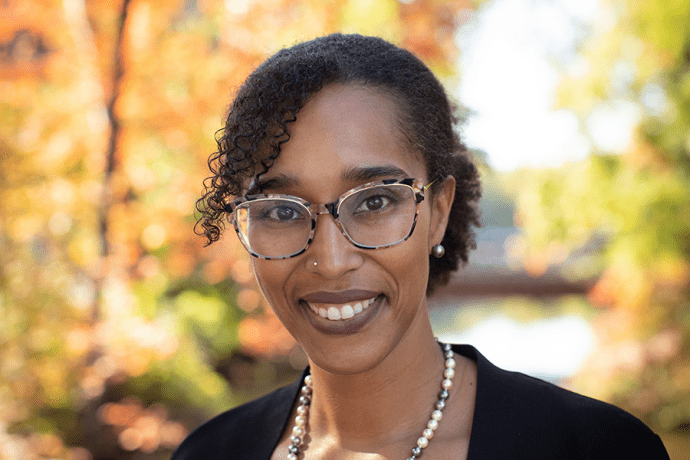Kira Banks ’00
- Psychology professor, St. Louis University
- Co-founder of St. Louis University’s Institute for Healing Justice and Equity

Kira Hudson Banks wears many hats: professor, author, consultant, researcher and thought leader. As a psychology professor at St. Louis University, her research focuses on how Black Americans in particular can use psychological theories and practices to distance themselves from the negative effects of discrimination and other systems of oppression. Banks is the first Black woman to receive tenure at the university’s Department of Psychology — and the only Black woman in her department.
Banks is also the co-founder of St. Louis University’s Institute for Healing Justice and Equity, a research institution committed to sharing power and resources with communities. In addition, she is a racial equity consultant for the Ferguson Commission and a key player in the Forward Through Ferguson The Catalyst Network.
To top it off, in recent years Banks launched a podcast, “Raising Equity,” and has been advising Hollywood studios like Nickelodeon, HBO and Pixar on how to address issues around equity and inclusion.
Taking her scholarship public has been a long time coming. Growing up in the predominantly white suburbs of St. Louis, Banks became interested in psychology while studying at Mount Holyoke. She credits Interim President Beverly Daniel Tatum, author of “Why Are All the Black Kids Sitting Together in the Cafeteria?,” for helping her develop language for her own experiences.
“I think the way that I made the leap was that I was watching you in [the class] Psychology of Racism and other spaces,” she said to Tatum during a Launching Leadership conversation earlier this year. “While you were writing ‘Why Are All the Black Kids?,’ you translated the theories that we were learning in the class to the lay public.”
Banks would go on to earn her M.A. and Ph.D. from the University of Michigan, become a clinical psychologist and publish over 20 articles in both popular and peer-reviewed outlets. She had been doing the work, but it was only after the murder of George Floyd in 2020, she said, that the rest of the world, including Hollywood, seemed to wake up and realize we all had so much to learn.
“I’ve always been trying to say that we have these ideas. We shouldn’t keep them in the ivory tower,” Banks said. “And that work [consulting], honestly, has helped shape how some studios do productions from pitch to post, thinking about what equity, diversity, inclusion means from the moment you conceive of an idea, when you develop it, when you cast it, when you look in the crew and through the whole arc … it’s been an interesting shift to try to push them to think beyond just numbers and tokens and side characters.”
Class Year: 2000
Major: Psychology and Education